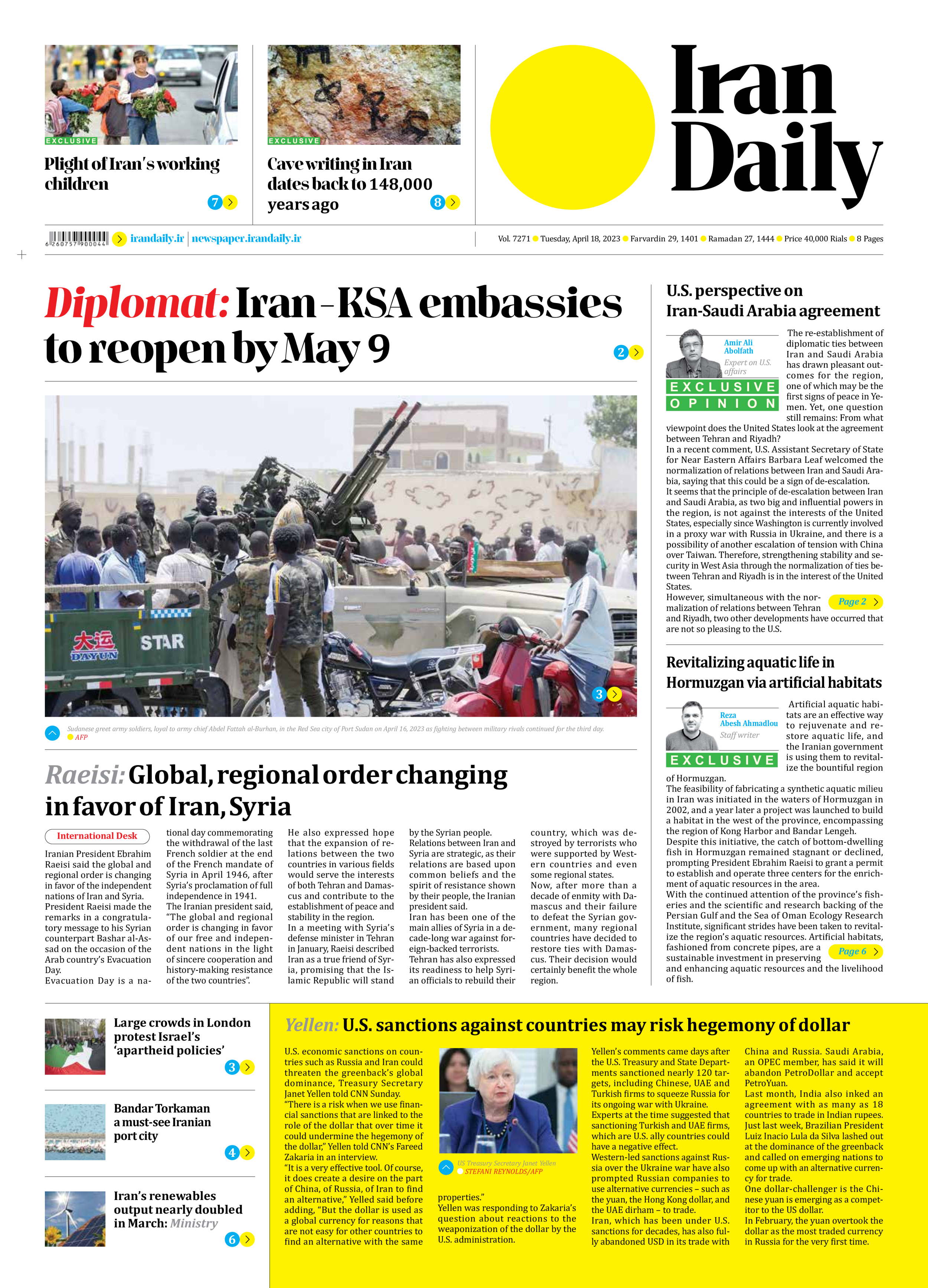
Yellen: U.S. sanctions against countries may risk hegemony of dollar
U.S. economic sanctions on countries such as Russia and Iran could threaten the greenback’s global dominance, Treasury Secretary Janet Yellen told CNN Sunday.
“There is a risk when we use financial sanctions that are linked to the role of the dollar that over time it could undermine the hegemony of the dollar,” Yellen told CNN’s Fareed Zakaria in an interview.
“It is a very effective tool. Of course, it does create a desire on the part of China, of Russia, of Iran to find an alternative,” Yelled said before adding, “But the dollar is used as a global currency for reasons that are not easy for other countries to find an alternative with the same properties.”
Yellen was responding to Zakaria’s question about reactions to the weaponization of the dollar by the U.S. administration.
Yellen’s comments came days after the U.S. Treasury and State Departments sanctioned nearly 120 targets, including Chinese, UAE and Turkish firms to squeeze Russia for its ongoing war with Ukraine.
Experts at the time suggested that sanctioning Turkish and UAE firms, which are U.S. ally countries could have a negative effect.
Western-led sanctions against Russia over the Ukraine war have also prompted Russian companies to use alternative currencies – such as the yuan, the Hong Kong dollar, and the UAE dirham – to trade.
Iran, which has been under U.S. sanctions for decades, has also fully abandoned USD in its trade with China and Russia. Saudi Arabia, an OPEC member, has said it will abandon PetroDollar and accept PetroYuan.
Last month, India also inked an agreement with as many as 18 countries to trade in Indian rupees.
Just last week, Brazilian President Luiz Inacio Lula da Silva lashed out at the dominance of the greenback and called on emerging nations to come up with an alternative currency for trade.
One dollar-challenger is the Chinese yuan is emerging as a competitor to the US dollar.
In February, the yuan overtook the dollar as the most traded currency in Russia for the very first time.







